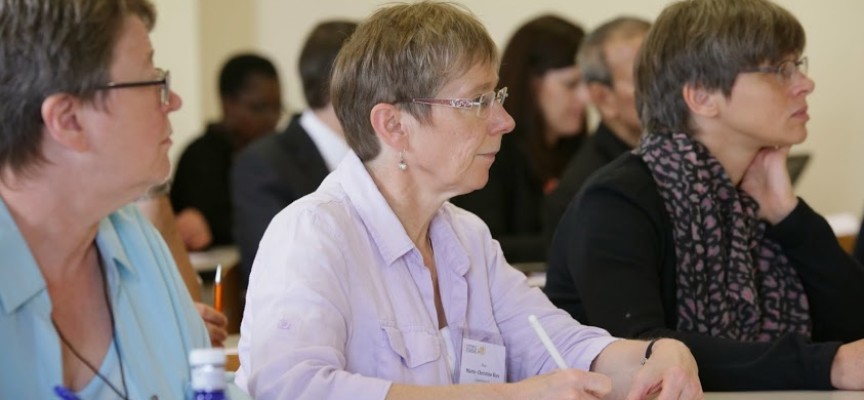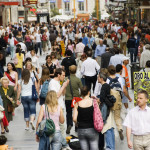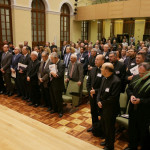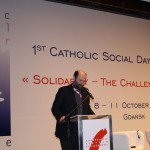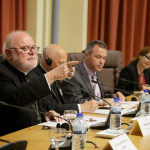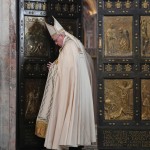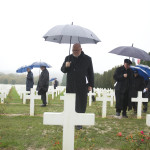“No one lights a lamp to put it under a tub; they put it on the lamp-stand where it shines for everyone in the house” (Matthew 5: 15-16).
Let’s be honest: how many European Catholics – even among the most committed – realized what was staged in Madrid last September 18th-21st?
Few, I’m sure, because – with some exceptions – there has been little reference to the second edition of the Social Days for Europe on the very same ecclesial media (not to mention the secular ones). Yet a meeting that was attended by nearly two hundred delegates from 29 European countries would have deserved, by the mere fact of being organized, much more consideration.
I leave to others the task of finding answers to this anomaly, but – according to the metaphor of the Gospel – I wonder if by doing so we do not run the risk of putting the light under the tub.
The metaphor is not misplaced, because the same Pope Francis, in his message to the participants at the Madrid Days, said that “one of the great challenges for the Church in Europe is to find effective ways to bring the light of the Gospel to bear upon the pressing issues which affect the continent”.
Because faith, has explained the Pope in the first months of his pontificate, it’s not simply to be defended, but announced, especially in times of spiritual and material crisis as those we are experiencing.
A faith of which Christians must be able to give a reason, as it has been reiterated on several occasions by the participants at the Days, starting from the Christian communities that too often remain on the fringes of the great debates in Europe.
Because only becoming aware of their choices and values, the promotion of institutions such as the family or marriage (just to name a few) will be perceived not as a defense of corporate interests, but as a willingness to share something important for the welfare of the entire society, including non-believers. And this is the contribution that Christians can and must give to the future of Europe!
To do that you have to work, simultaneously, on two lines of communication: the first is toward a “right narrative of Europe”, using the expression of Msgr. Gianni Ambrosio, vice-president of COMECE, which must be accompanied by a proper narrative of the mission of the Church.
Both these commitments, not to fall into self-referentiality need to be fed by a truly European dialogue that involves all believers, to widen then to the whole of society.
A discussion free and frank, but at the same time engaged and informed, on the major issues facing us: the economic crisis, demography, migration, youth …
A debate which is not afraid of the differences in positions, rather that enhances them, recognizing how the Church in Europe has a plural nature, though remaining one.
The Social Days have proved this, and at the same time have shown the richness of experiences existing in the European continent. It is to be regretted that many have not noticed it.
The hope is that the upcoming visit of Pope Francis to the Parliament in Strasbourg can not only renew the Church passion for Europe, but also the debate on the role that Christian communities are called to play: today more than yesterday.
“Non si accende una lampada per metterla sotto un recipiente; anzi la si mette sul candeliere ed essa fa luce a tutti quelli che sono in casa” (Matteo 5, 15-16).
Dobbiamo essere sinceri: quanti cattolici europei – anche tra i più impegnati – si sono accorti di quanto andato in scena a Madrid dal 18 al 21 settembre scorsi?
Pochi, ne sono certo, perché – salvo alcune eccezioni – scarsi sono stati i richiami sugli stessi media ecclesiali (per non parlare dei media laici) della seconda edizione delle Giornate sociali europee. Eppure un incontro che ha visto la partecipazione di quasi duecento delegati da 29 Paesi europei avrebbe meritato, per il solo fatto di essere stato organizzato, ben altra considerazione.
Lascio ad altri il compito di trovare risposte a questa anomalia ma – stando alla metafora evangelica – mi viene da chiedere: così facendo non corriamo il rischio di mettere la luce sotto al recipiente?
Una metafora non fuori luogo perché lo stesso papa Francesco, nel messaggio inviato ai partecipanti alle Giornate di Madrid, ha sottolineato come “una delle grandi sfide per la Chiesa in Europa consista nel trovare dei modi efficaci per far sì che la luce del Vangelo entri in relazione con le questioni urgenti che il continente si trova ad affrontare”.
Perché la fede, ci ha spiegato il Papa in questi primi mesi di pontificato, non va semplicemente difesa, ma annunciata, specialmente in tempi di crisi materiale e spirituale come quelli che stiamo vivendo.
Una fede a cui, hanno ribadito in più occasioni i partecipanti alle Giornate, i cristiani devono essere capaci di rendere ragione: a partire dalle comunità cristiane che, troppo spesso, restano ai margini dei grandi dibattiti europei.
Perché solo prendendo consapevolezza delle proprie scelte e dei propri valori, la promozione d’istituzioni come la famiglia o il matrimonio (solo per citarne alcune) potrà essere percepita non come una difesa d’interessi corporativi, ma come la volontà di condividere qualcosa d’importante per il benessere dell’intera società, anche dei non credenti. È questo il contributo che i cristiani possono e devono dare al futuro dell’Europa!
Per farlo bisogna lavorare, contestualmente, su due direttrici di comunicazione: la prima è quella verso una “giusta narrazione dell’Europa”, usando l’espressione di mons. Gianni Ambrosio, vice-presidente della COMECE, a cui deve accompagnarsi una giusta narrazione della missione della Chiesa.
Entrambi questi impegni, per non cadere nell’autoreferenzialità, hanno bisogno di essere alimentati da un dialogo autenticamente europeo che coinvolta tutti i credenti, per allargarsi poi all’intera società.
Un confronto libero e franco, ma allo stesso tempo impegnato e informato, sui grandi temi che ci attendono: crisi economica, demografia, migrazioni, giovani…
Un dibattito che non abbia paura delle differenze di posizioni, anzi che le valorizzi, riconoscendo come la Chiesa in Europa abbia una natura plurale, pur restando una.
Le Giornate sociali l’hanno dimostrato, come hanno dimostrato la ricchezza di esperienze presenti nel continente europeo. Dispiace che molti non se ne siano accorti.
La speranza è che la prossima visita di papa Francesco al Parlamento di Strasburgo possa non solo riaccendere la passione europea della Chiesa, ma anche il dibattito sul ruolo che le comunità cristiane sono chiamati a giocare: oggi più di ieri.
Michele Luppi
www.africaeuropa.it
Latest posts by Michele Luppi (see all)
- How can Europe do that? - 16 aprile 2016
- A raw nerve in european consciousness - 23 luglio 2015
- The cry of the dead of Garissa - 18 aprile 2015

